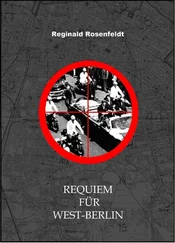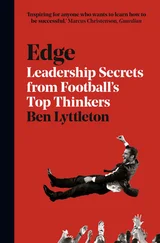Isaiah Berlin - Russian Thinkers
Здесь есть возможность читать онлайн «Isaiah Berlin - Russian Thinkers» весь текст электронной книги совершенно бесплатно (целиком полную версию без сокращений). В некоторых случаях можно слушать аудио, скачать через торрент в формате fb2 и присутствует краткое содержание. Год выпуска: 0101, Жанр: Старинная литература, на русском языке. Описание произведения, (предисловие) а так же отзывы посетителей доступны на портале библиотеки ЛибКат.
- Название:Russian Thinkers
- Автор:
- Жанр:
- Год:0101
- ISBN:нет данных
- Рейтинг книги:3 / 5. Голосов: 1
-
Избранное:Добавить в избранное
- Отзывы:
-
Ваша оценка:
- 60
- 1
- 2
- 3
- 4
- 5
Russian Thinkers: краткое содержание, описание и аннотация
Предлагаем к чтению аннотацию, описание, краткое содержание или предисловие (зависит от того, что написал сам автор книги «Russian Thinkers»). Если вы не нашли необходимую информацию о книге — напишите в комментариях, мы постараемся отыскать её.
Russian Thinkers — читать онлайн бесплатно полную книгу (весь текст) целиком
Ниже представлен текст книги, разбитый по страницам. Система сохранения места последней прочитанной страницы, позволяет с удобством читать онлайн бесплатно книгу «Russian Thinkers», без необходимости каждый раз заново искать на чём Вы остановились. Поставьте закладку, и сможете в любой момент перейти на страницу, на которой закончили чтение.
Интервал:
Закладка:
to complete harmony in which everything fits and is at peace; with
the corollary that knowledge of man's nature gained from observation
or introspection or moral intuition, or from the study of the lives and
writings of the best and wisest men of all ages, can show us this path.
This is not the place for considering how far the doctrine is compatible
with ancient religious teachings or modern psychology. The point I
wish to stress is that it is, above all, a programme of action, a declaration of war against current social values, against the tyranny of states, societies, churches, against brutality, injustice, stupidity, hypocrisy,
weakness, above all against vanity and moral blindness. A man who
has fought a good fight in this war will thereby expiate the sin of
having been a hedonist and an exploiter, and the son and beneficiary
of robbers and oppressors.
This is what Tolstoy believed, preached, and practised. His 'conversion' altered his view of what was good and what was evil. It did not weaken his faith in the need for action. His belief in the principles
themselves never wavered. The enemy entered by another door:
Tolstoy's sense of reality was too inexorable to keep out tormenting
doubts about how these principles-no matter how true themselvesshould be applied. Even though I believe some things to be beautiful or good, and others to be ugly and evil, what right have I to bring up
others in the light of my convictions, when I know that I cannot help
liking Chopin and Maupassant, while these far better men-peasants
or children-do not? Have I, who stand at the end of a long period of
elaboration-of generations of civilised, unnatural living-have I the
right to touch thnr souls?
To seek to influence someone is to engage in a morally suspect
enterprise. This is obvious in the case of the crude manipulation of
one man by another. But in principle it holds equally of education. All
254


TOLSTOY AND E N L I G HTENMENT
educators seek to shape the minds and lives of the educated towards a
given goal, or to resemble a given model. But if we-the sophisticated
members of a deeply corrupt society-are ourselves unhappy, inharmonious, gone astray, what can we be doing but trying to change children born healthy into our own sick semblance, to make cripples
of them like ourselves? We are what we have become, we cannot help
our love of Pushkin's verse, of Chopin's music; we discover that
children and peasants find them unintelligible or tedious. What do we
do? We persist, we 'educate' them until they too appear to enjoy these
works or, at least, see why we enjoy them. What have we done? We
find the works of Mozart and Chopin beautiful only because Mozart
and Chopin were themselves children of our decadent culture, and
therefore their words speak to our diseased minds; but what right have
we to infect others, to make them as corrupt as ourselves? We can
see the blemishes of other systems. We see all too clearly how the
human personality is destroyed by Protestant insistence on obedience,
by Catholic stress on emulation, by the appeal to self-interest and the
importance of social position or .rank on which Russian education,
according to Tolstoy, is based. Is it not, then, either monstrous
arrogance or a perverse inconsistency to behave as if our own favoured
systems of education-something recommended by Pestalozzi, or the
Lancaster method, systems which merely reRect their inventors'
civilised, and consequently perverted, personalities-are necessarily
superior, or less destructive, than what we condemn so readily
and justly in the superficial French or the stupid and pompous
Germans?
How is this to be avoided? Tolstoy repeats the lessons of Rousseau's
Emile. Nature: only natur� will save us. We must seek to understand
what is 'natural', spontaneous, uncorrupt, sound, in harmony with
itself and other objects in the world, and clear paths for development
on these lines; not seek to alter, to force into a mould. We must
listen to the dictates of our stiRed original nature, not look on it as
mere raw stuff upon which to impose our unique personalities and
powerful wills. To defy, to be Promethean, to create goals and build
worlds in rivalry with what our moral sense knows to be eternal
truths, given once and for all to all men, truths in virtue of which
they are men and not beasts-that is the monstrous sin of pride, committed by all reformers, all revolutionaries, all men judged great and effective. And no less by government officials, or by country squires
who, from liberal convictions or simply caprice or boredom, interfere
•'
255
R U S S I AN T H INKERS
with the lives of the peasants.1 Do not teach; learn: that is the sense
of Tolstoy's essay, written nearly a hundred years ago, 'Who should
learn to write from whom: should peasants' children learn from us,
or should we learn from peasants' children?', and of all the accounts
published in the 1 86os and 7os, written with his customary freshness,
attention to detail, and unapproachable power of direct perception, in
which he gives examples of stories written by the children in his
village, and speaks of the awe which he felt while in the presence of
the act of pure creation, in which, he _assures us, he played no part
himself. These stories would only be spoilt by his 'corrections'; they
see� to him far more profound than any of the works of Goethe; he
explains how deeply ashamed they make him of his own superficiality,
vanity, stupidity, narrowness, lack of moral and aesthetic sense. If one
can help children and peasants, it is only by making it easier for them
to advance freely along their own instinctive path. To direct is to
spoil. Men are good and need only freedom to realise their goodness.
'Education', writes Tolstoy in 1 862., 'is the action of one man on
another with a view to causing this other person to acquire certain
moral habits (we say: they have brought him up to be a hypocrite, a
robber or a good man. The SP.rtans brought up brave men, the
French bring up one-sided and self-satisfied persons).' But this is
speaking of-and using-human beings as so much raw material that
we model; this is what 'bringing up' to be like this or like that means.
We are evidently ready to alter the direction spontaneously followed
by the souls and wills of others, to deny their independence-in favour
of what? Of our own corrupt, false, or at best, uncertain values? But
this involves always some degree of moral tyranny. In a wild moment
of panic Tolstoy wonders whether the ultimate motive of the educator
is not envy, for the root of the educator's passion for his task is 'envy
of the purity of the child and the desire to make the child like himself,
that is, more corrupt'. What has the entire history of education been?
All philosophers of education, from Plato to Kant, sought one goal :
'to free education from the oppression of the chains of the historic
past'. They want 'to guess at what men need and then build their new
1 Mikhailovsky maintains that in Polilusllla, one of Tolstoy's best stories,
composed during the period of the educational tracts, he represents the
tragic death of the hero as ultimately due to the wilful interference with the
Читать дальшеИнтервал:
Закладка:
Похожие книги на «Russian Thinkers»
Представляем Вашему вниманию похожие книги на «Russian Thinkers» списком для выбора. Мы отобрали схожую по названию и смыслу литературу в надежде предоставить читателям больше вариантов отыскать новые, интересные, ещё непрочитанные произведения.
Обсуждение, отзывы о книге «Russian Thinkers» и просто собственные мнения читателей. Оставьте ваши комментарии, напишите, что Вы думаете о произведении, его смысле или главных героях. Укажите что конкретно понравилось, а что нет, и почему Вы так считаете.










